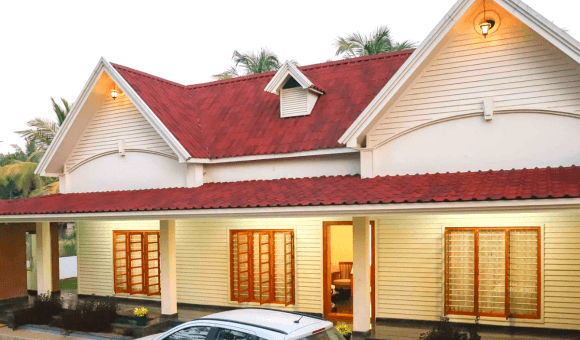
Introduction
Roofing solutions have progressed from merely being useful to an essential component of sustainable living. Traditional roofing materials, such as concrete tiles, have a substantial environmental effect during manufacturing, shipping, and installation. Eco-friendly roofing tiles are becoming popular among homeowners and business property owners because they provide a choice of sustainable and ecologically responsible roofing. Onduline roofing is one such option that has gained popularity. Because Onduline roofing tiles are asbestos-free and are manufactured from recycled fibres. Onduline uses natural pigmentation for customising the colours and is a feasible choice for lowering carbon impact. In this blog, we will look at the eco-friendliness of Onduline roofing tiles, their environmental effect, and the advantages of selecting these sustainable roofing materials.
Importance of Eco-Friendly Roofing Solutions
Eco-friendly roofing solutions offer numerous benefits for homeowners and the environment. They reduce their carbon footprint using renewable resources and recycled fibres. These roofing materials also regulate interior temperatures, improving energy efficiency and reducing electricity costs. They are durable and long-lasting, reducing the need for frequent replacements and repairs.
How Onduline Roofing Tiles Benefit the Environment?
Onduline roofing tiles are made from recycled fibres, bitumen, polycarbonate and other materials, making them lightweight, sustainable and eco-friendly roofing option. Here are some ways that Onduline roofing tiles benefit the environment:
- Reduced Carbon Footprint
Onduline roofing tiles have a lower carbon footprint compared to traditional roofing materials. The manufacturing process produces fewer CO2 emissions. They also require less energy to produce, reducing the use of fossil fuels and the associated carbon emissions.
- Low Waste
By using raw materials efficiently, recyclable materials, and designing for modularity, Onduvilla tiles help reduce waste and conserve natural resources.
- Durability and Longevity
The roofing tiles are durable and long-lasting, reducing the need for frequent replacement and the associated waste generation. Traditional roofing materials require frequent replacement and generate more waste.
- Energy Efficiency Roofing Tiles
Onduline roofing tiles are made from a composite of bitumen and recycled fibres, making them highly energy-efficient. The roof tiles are not only durable and anti-corrosive, but they also provide effective waterproofing and thermal and acoustic comfort.
How is Onduline Roofing better than other roofing solutions?
Onduline is a lightweight roofing system with great options like Onduvilla roof panels. These ecologically friendly tiles offer the best thermal comfort, high wind resistance, and long-lasting roofing option because they are manufactured from recycled fibres and bitumen. The tiles have similar aesthetics to conventional clay tiles but offer advantages like lightweight, flexible structures and simple installation. They come in various colours, enabling customisation and visual charm. Onduvilla tile installation is simple and doesn't call for specific tools or machinery. The tile's lightweight construction reduces shipping expenses and related carbon emissions. Furthermore, the roofing panels are adaptable and can endure adverse weather, minimising the need for repair and replacements.
Conclusion
Choosing eco-friendly, modern roofing tiles in India is essential for reducing the impact of traditional roofing materials on the environment. Onduline roofing tiles are a sustainable and eco-friendly option with a lower carbon footprint, recyclability, low waste generation, durability, and energy efficiency. They are a better choice compared to traditional roofing materials, with a lightweight design,